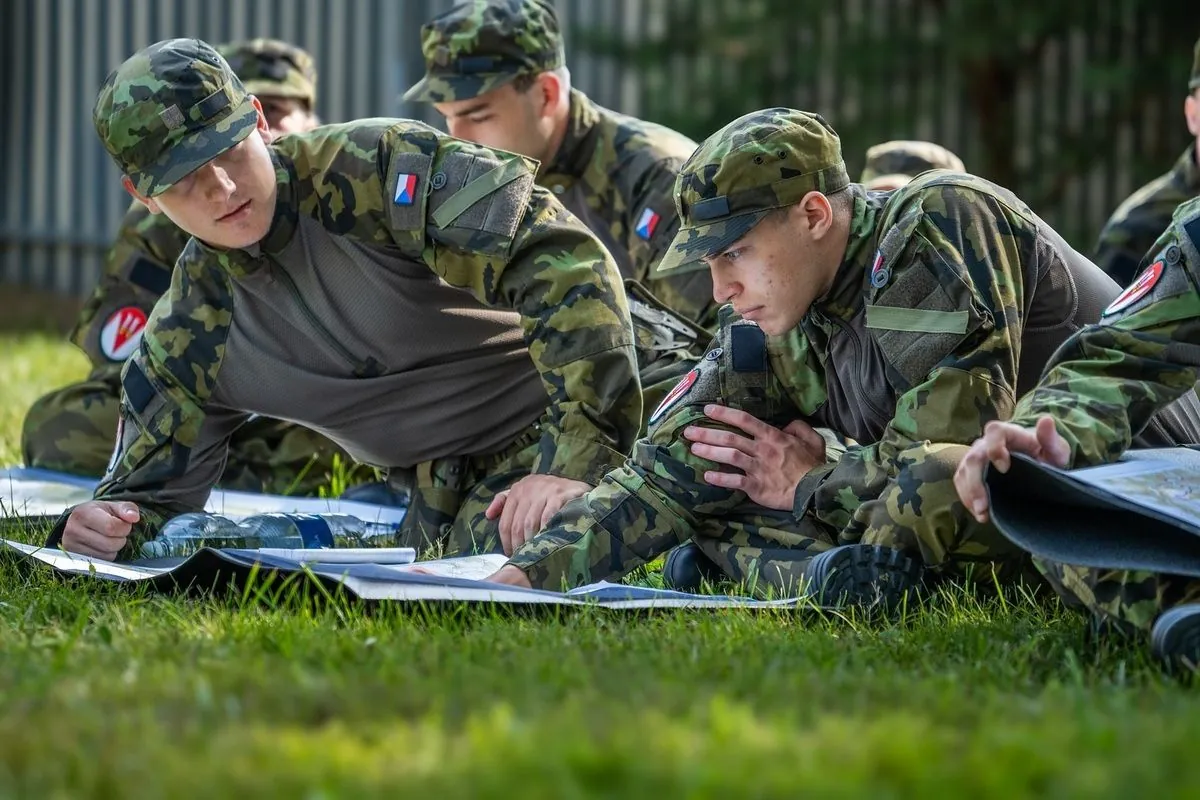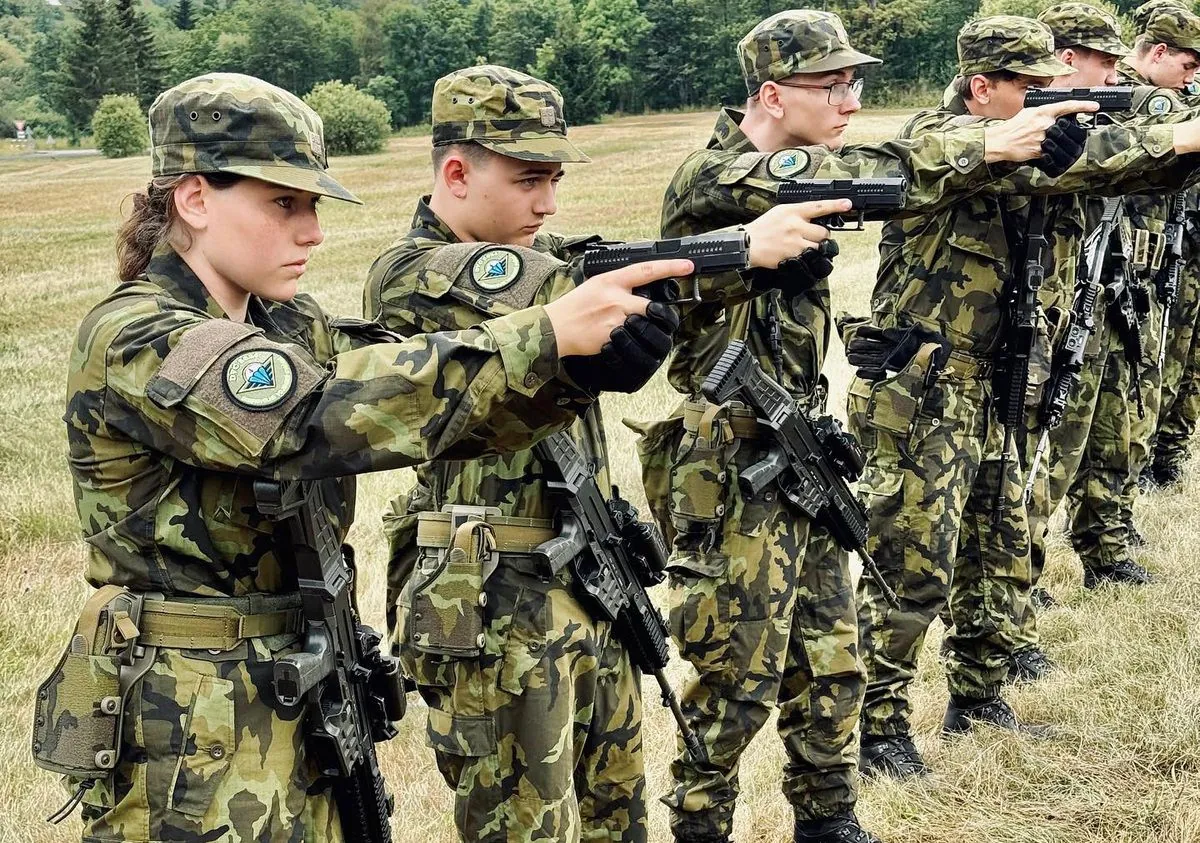Czech Army's Youth Camp Aims to Boost Enlistment Amid Regional Recruitment Woes
Eastern European NATO members, including the Czech Republic, face recruitment challenges amidst Russia's invasion of Ukraine. A pilot program for high schoolers aims to attract new soldiers and address troop shortages.

In the forests of the Czech Republic, a unique scene unfolds as high school students crawl through the underbrush, wielding combat rifles and learning military tactics. This summer camp, organized by the Czech army, is not just a recreational activity but a strategic move to address a pressing issue facing many Eastern European NATO members: recruitment shortages.
The urgency of this matter has been heightened by Russia's invasion of neighboring Ukraine, serving as a stark reminder of potential threats to the region. The Czech Republic, along with other former Soviet satellite states now in NATO, has been grappling with missed recruitment targets for years, leaving army units understaffed and compromising combat readiness.

General Karel Rehka, the Czech armed forces chief, has labeled the current system as unsustainable. The pilot program, run by the 4th Rapid Deployment Brigade, aims to give students an early taste of military life. This unit, operating at only 50% capacity due to soldier shortages, exemplifies the broader challenges faced by the Czech military.
"We want to deter any potential adversary in the future. If we don't do anything about the lack of human resources in the military..., it may mean that we won't be able to preserve our peace and to deter any potential enemy."
The Czech Republic's recruitment struggles are not unique in the region. Poland, Hungary, Romania, and Slovakia, all sharing borders with Ukraine, face similar challenges. These countries are implementing various innovative strategies to attract new recruits and retain experienced personnel.
It's worth noting that the Czech Republic joined NATO on March 12, 1999, along with Hungary and Poland, marking a significant shift from its former Warsaw Pact membership. Since then, the country has been actively participating in NATO operations and has been increasing its defense budget in recent years due to growing security concerns.
The Czech military, with around 25,000 active personnel as of 2023, has been modernizing its equipment, including the acquisition of Swedish-made Gripen fighter jets. However, the shortage of trained personnel to operate such advanced weaponry remains a critical issue.
To address these challenges, countries in the region are turning to digital marketing campaigns, increased enlistment bonuses, and even considering lowering medical requirements for recruits. Poland, for instance, has launched a "Holidays With the Army" campaign, providing basic military training for citizens aged 18 to 35 over 28 days.
Despite these efforts, the competitive labor market in Eastern Europe presents a significant hurdle. With low unemployment rates, convincing young people to enlist for potentially lower salaries than they could earn in the private sector remains a challenge.
As the Czech Republic and its neighbors continue to navigate these recruitment challenges, the importance of human resources in maintaining effective defense capabilities cannot be overstated. The success of programs like the Czech army's summer camp for high schoolers may prove crucial in shaping the future of Eastern European military preparedness.


































